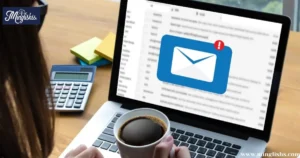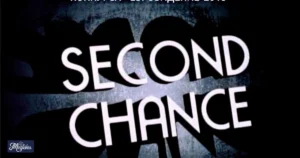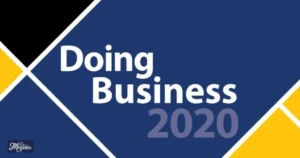“The way you communicate your accomplishments can make all the difference in your professional relationships.”
In any professional setting, effective communication is crucial. When you complete a task, conveying this accomplishment accurately can enhance your credibility and foster better relationships with your colleagues. Instead of relying on the same phrase repeatedly, exploring various expressions can add richness to your communication and make it more engaging.
In this blog, we will dive into alternative phrases for “I have completed the task” that you can use in different situations.
We encourage you to not only read through these alternatives but also practice incorporating them into your daily interactions. Whether you’re sending an email update to your team or providing feedback to your manager, expressing your achievements with varied language can leave a lasting impression. So, let’s explore these phrases together and elevate your communication skills!
This blog will provide 35 different ways to express that you have completed a task, complete with scenarios for context. Each alternative phrase will include a brief explanation of its usage, along with additional tips to enhance your communication. By the end of this blog, you’ll have a robust toolkit of expressions to choose from, ensuring you can convey your accomplishments effectively.
Alternative Phrases
1. I Have Finished the Task

Scenario: You just completed a report for your manager.
Subject Explanation: “I have finished the task” is a straightforward way to convey that you’ve completed your assignment. It’s simple yet effective for clear communication.
Additional Tip: Use this phrase when you want to keep things brief and to the point.
2. The Task is Complete
Scenario: You’ve finalized a project and are ready to present it to your team.
Subject Explanation: This phrase indicates that the work is not just finished but fully done.
Additional Tip: Use this when you want to sound professional and formal.
3. I Have Wrapped It Up

Scenario: You’re speaking to a colleague after finishing a presentation.
Subject Explanation: This casual phrase conveys that you’ve completed your task in a friendly manner.
Additional Tip: Use this in informal settings to maintain a relaxed tone.
4. The Task is Accomplished
Scenario: You’ve successfully completed a major project milestone.
Subject Explanation: This expression emphasizes that the task has been not only finished but done successfully.
Additional Tip: This phrase works well when you want to celebrate success.
5. I Have Executed the Task
Scenario: After implementing a new software feature, you update your team.
Subject Explanation: This phrase indicates that you have carried out the task effectively.
Additional Tip: Use this in technical environments to convey a sense of professionalism.
6. I Have Fulfilled the Assignment

Scenario: After completing a client’s request, you inform your supervisor.
Subject Explanation: This phrase suggests that you have completed what was asked of you.
Additional Tip: This is useful in formal communication.
7. The Task is Done
Scenario: You finish your daily duties and report back to your manager.
Subject Explanation: A straightforward way to state that you have completed the work.
Additional Tip: Great for casual conversations where brevity is appreciated.
8. I Have Concluded the Task

Scenario: You’ve wrapped up a research project.
Subject Explanation: This phrase indicates that you have brought the task to a close.
Additional Tip: Use this when discussing tasks that require thorough investigation.
9. I Have Accomplished the Task
Scenario: You’re summarizing your week’s work in a team meeting.
Subject Explanation: This highlights not just the completion but the achievement involved.
Additional Tip: Ideal for performance reviews to showcase your contributions.
10. I Have Delivered the Task
Scenario: You send the completed project to your client.
Subject Explanation: This phrase indicates that you have finished the task and shared the results.
Additional Tip: Use this in client communications to demonstrate professionalism.
11. The Job is Completed
Scenario: You inform your boss after finishing a routine check.
Subject Explanation: A professional way to confirm that you’ve finished your responsibilities.
Additional Tip: Use this in formal situations to convey seriousness.
12. I Have Checked It Off My List
Scenario: You finish a small task during a busy workday.
Subject Explanation: This casual phrase implies that you have completed the task and are organized.
Additional Tip: Use this among colleagues to foster a casual atmosphere.
13. I Have Ticked That Off
Scenario: You complete a task during a meeting and let everyone know.
Subject Explanation: A light-hearted way to indicate that a task is done.
Additional Tip: Use this in informal settings for a relaxed vibe.
14. The Work is Finalized
Scenario: You send out a finalized report to your team.
Subject Explanation: This indicates that the work has been completed with no further changes expected.
Additional Tip: Great for formal documentation.
15. I Have Wrapped Everything Up
Scenario: After completing several tasks, you inform your team.
Subject Explanation: This phrase conveys that you’ve finished multiple tasks successfully.
Additional Tip: Use this when concluding a busy period.
16. I Have Achieved the Task
Scenario: You present your results after finishing a challenging assignment.
Subject Explanation: This phrase emphasizes that the task has been successfully accomplished.
Additional Tip: Use this to inspire others by showcasing your dedication.
17. The Task is Sealed
Scenario: You finalize and submit your work to the relevant authorities.
Subject Explanation: This indicates that you have completed the task, and it’s officially done.
Additional Tip: Use this in formal settings where finality is important.
18. I Have Cleared the Task
Scenario: You inform your team about completing your part of a group project.
Subject Explanation: This indicates that you have finished your responsibilities.
Additional Tip: This is useful in collaborative environments.
19. I Have Accomplished My Goals
Scenario: You reflect on a week of work and share your progress with your manager.
Subject Explanation: This phrase implies that you have met your personal or team objectives.
Additional Tip: Use this to motivate yourself and others.
20. I Have Fulfilled My Duties
Scenario: You complete your assigned tasks for the day.
Subject Explanation: This phrase conveys a sense of responsibility and completion.
Additional Tip: Great for formal reports or meetings.
21. I Have Finished the Job
Scenario: You complete a task at work and notify your boss.
Subject Explanation: A clear statement that you’ve completed your responsibilities.
Additional Tip: Useful in casual workplace conversations.
22. I Have Finalized the Details
Scenario: After confirming all project elements, you inform your team.
Subject Explanation: This emphasizes that all necessary components of a task are complete.
Additional Tip: Ideal for project management discussions.
Other Ways to Say “Excuse My Ignorance”
23. The Task is Signed Off
Scenario: After finishing a project, you get approval from your supervisor.
Subject Explanation: This indicates that the task is not only complete but has been accepted.
Additional Tip: Use this in environments where oversight is important.
24. I Have Accomplished My Tasks
Scenario: You update your supervisor on your progress at the end of the week.
Subject Explanation: This phrase highlights that all assigned tasks are finished.
Additional Tip: Great for weekly check-ins.
25. I Have Finished Up
Scenario: You complete a small task and share the news with a colleague.
Subject Explanation: This casual phrase indicates that the work is done.
Additional Tip: Use this in informal settings to keep things light.
26. The Work is Done and Dusted
Scenario: After a long project, you update your team.
Subject Explanation: This phrase conveys that the work is completed without any pending issues.
Additional Tip: Use this for a celebratory tone.
27. I Have Brought It to a Close
Scenario: You finish an important meeting and summarize the outcomes.
Subject Explanation: This indicates that the task has been completed effectively.
Additional Tip: Use this in formal discussions.
28. I Have Executed the Plan
Scenario: After successfully implementing a strategy, you inform your team.
Subject Explanation: This phrase emphasizes that you followed through with a specific plan.
Additional Tip: Ideal for project discussions.
29. I Have Checked This Off My List
Scenario: You complete a task during a busy day.
Subject Explanation: This indicates that the task was on your to-do list and has been completed.
Additional Tip: Great for motivational settings.
30. I Have Settled the Task
Scenario: After completing a small task, you inform your colleague.
Subject Explanation: This phrase conveys a sense of resolution.
Additional Tip: Use this to indicate closure.
31. I Have Completed My Portion
Scenario: You finish your part of a team project.
Subject Explanation: This phrase indicates that you have fulfilled your responsibilities within a group.
Additional Tip: Useful in collaborative environments.
32. I Have Finished the Assignment
Scenario: You update your teacher about your homework.
Subject Explanation: A clear way to state that you have completed your schoolwork.
Additional Tip: Use this in academic settings.
33. I Have Fulfilled the Requirement
Scenario: You complete a project that meets specific criteria.
Subject Explanation: This indicates that you have met the expected standards.
Additional Tip: Great for formal evaluations.
34. I Have Brought This Task to Completion
Scenario: You finish a complicated task at work and inform your manager.
Subject Explanation: This phrase emphasizes the process and finality of your work.
Additional Tip: Useful for detailed project discussions.
35. I Have Put the Finishing Touches
Scenario: After completing a design project, you let your team know.
Subject Explanation: This indicates that you have made final adjustments to perfect the task.
Additional Tip: Use this to highlight attention to detail.
Pros and Cons of Using Alternative Phrases
Pros
- Variety: Using different phrases keeps your communication fresh and engaging.
- Clarity: Some phrases might be clearer in specific contexts, making your message more effective.
- Professionalism: Certain expressions can enhance your credibility in a formal setting.
Cons
- Overcomplication: Too much variation may confuse your audience if not used appropriately.
- Context Sensitivity: Not every phrase fits every situation; choosing the wrong one may detract from your message.
Answers To Key Questions “I Have Completed the Task”
1. Why should I use different phrases for “I have completed the task”?
Using varied phrases helps keep your communication engaging and can better convey the context of your completion. It shows your language proficiency and can enhance your professional image.
2. Are there specific phrases to use in formal settings?
Yes, phrases like “The task is complete” or “I have fulfilled my duties” are more suitable for formal environments. These expressions convey professionalism and clarity.
3. Can I use casual phrases at work?
Absolutely! Casual phrases like “I have wrapped it up” or “I have ticked that off” can be used in informal settings or among colleagues to create a relaxed atmosphere.
4. How can I choose the right phrase for the situation?
Consider the context and your audience. For formal reports, opt for more professional phrases, while in casual conversations, feel free to use lighter expressions.
5. What if I forget these phrases during a conversation?
It’s okay! With practice, you’ll become more comfortable using different expressions. If you forget, just stick to simple phrases like “I have finished the task” until you feel more confident.
Conclusion
Incorporating a variety of phrases to express that you have completed a task not only enhances your communication skills but also strengthens your professional relationships. Whether you prefer a formal tone or a more casual one, the alternatives discussed in this blog provide you with the tools to convey your accomplishments effectively.
Remember, the key is to match your expression to the context of the conversation. So, the next time you finish a task, consider using one of these alternatives to make your communication stand out!

I’m Jane Austen, a language expert at Minglishs, dedicated to helping learners master English through engaging and accessible content. My passion for literature and teaching drives me to make language learning both enjoyable and effective.










